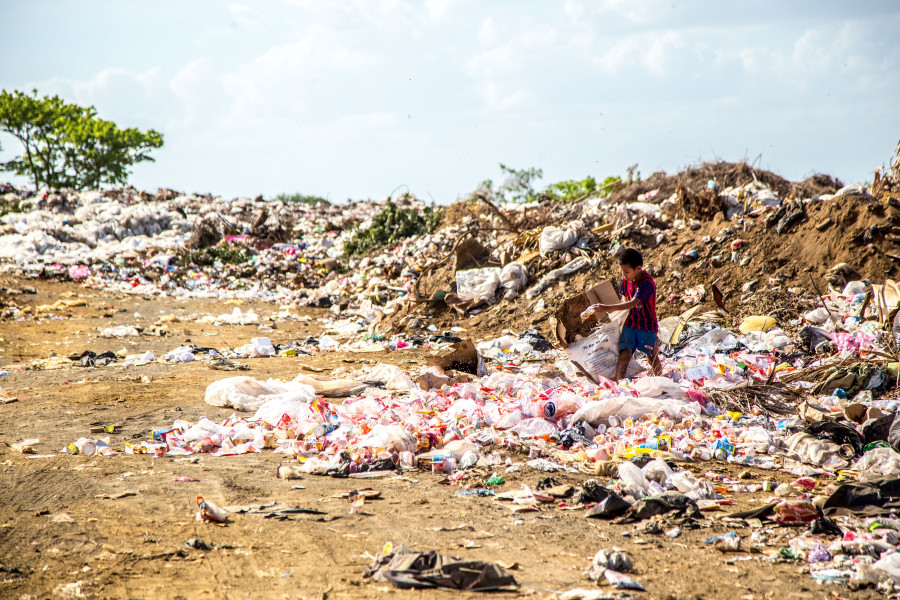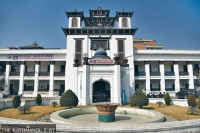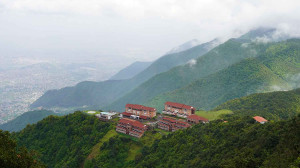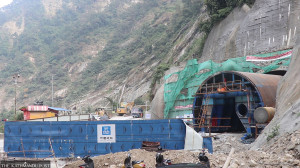Money
Piling up
Thanks to increasing urbanisation, Nepal is facing a huge waste management challenge. Yet, the concerned authorities have failed to give it the kind of attention it warrants.
Binod Joshi
Thanks to increasing urbanisation, Nepal is facing a huge waste management challenge. Yet, the concerned authorities have failed to give it the kind of attention it warrants. Various stakeholder and organisations are involved in waste management, but they are only concentrated and focused on the collecting and dumping waste. The major three basic principle of waste management—recycling, reusing and reducing—are not emphasised enough by the major cities of Nepal for waste management that is effective and sustainable.
The key to efficient waste management is to ensure proper segregation of waste at source and to ensure that the waste goes through different streams of recycling and resource recovery. One of the best ways of managing waste includes waste to energy conversion.
The solid waste that is derived from homes and hotels can be converted to biogas, electricity, fertiliser, and fuel. Plastic waste can be managed through the process of pyrolysis which involves the procedure of heating the waste thermo chemically to extract mixture of oil that yield diesel, petrol and even electricity. Biogas generation from putrefiable waste is another excellent way of managing waste. In addition to this composting can be done.
Another possible solution for waste management is incineration. First adopted in the United Kingdom, incineration is known as thermal treatment that involves the combustion of organic substances contained in waste materials. Only those materials that are unable to recycle are managed by this process of incineration. This method is particularly popular in Japan where availability of land is scarce.
In the context of Nepal, we have poor municipal solid waste (MSW) management techniques. More than 80 percent of waste is dumped at landfill sites. The estimated amount of MSW across the country is 2,000 tonnes, while the Kathmandu Valley alone generates 566 tonnes of solid waste each day.
This MSW generated by Kathmandu valley is 3.5 times more than waste generated in Pokhara which is next in the list with 117 tons a day. About 6MW of electricity could be produced from the waste generated at Kathmandu valley alone.
Using landfill as a primary method of waste disposal is neither eco-friendly, nor sustainable in a country like ours. The trash produced in Kathmandu and Lalitpur is dumped at Sisdol landfill site in Nuwakot. But the landfill site nearly burst at seams a few months ago owing to an overload of solid waste. If only we tried to manage waste by recycling and reusing, this problem could have been reduced to a large extent. Establishing incinerator and other WTE plants could not be possible for us right away. But if are determined enough, we can manage waste in such a way that only 30 percent of the non-recyclable trash is dumped in the landfill.
In case of Kathmandu valley Doko recycler is one of the leading company that is focusing on the waste management. Although Nepwaste Pvt Ltd , Clean Valley Company and the Dutch-Nepali enterprise have been working on waste management, but they are not sufficient to combat the waste disposal problem in the valley. Practical Action Nepal Office has initiated a project called “Strengthening Local Capacities in Integrated Sustainable Waste Management (ISWM) in small and medium municipalities of Nepal” with the financial support from European Union under its EC Asia Eco Pro II programme and close partnership among Practical Action Nepal, GTZ/udle, MuAN and WASTE. The project is basically targeted to four municipalities i.e. Bharatpur, Vyas, Birendranagar and Nepalgunj. These are commendable initiative but more need to be done.
The most significant challenge still remains managing unsystematic land filing of waste as well as illegal dumping of waste into rivers and lake which has caused environmental and public health problems. Further, the dumping of e-waste—mainly computer waste—commonly called green passport waste, too has exacerbated the waste management in the country.
Nepal’s waste management predicament presents a number of social and environmental problems for us. Simple steps, such as community participation could be the starting point for efficient waste management. Gradually, which technology will be best suited for us needs to be identified too. From the government side, it needs to propel sanitation to the top of the policy agenda. Further, scientific principle and engineering method for waste management should be adopted.
Youths in Pokhara showed us the way to recycling plastic by paving a section of road with non-biodegradable waste. Converting waste from nothing to everything is possible. We just need a strong political will and collective conscience to make it happen.
- Joshi is studying at Agriculture and Forestry University, Rampur in Chitwan.




 7.12°C Kathmandu
7.12°C Kathmandu

.jpg&w=200&height=120)













